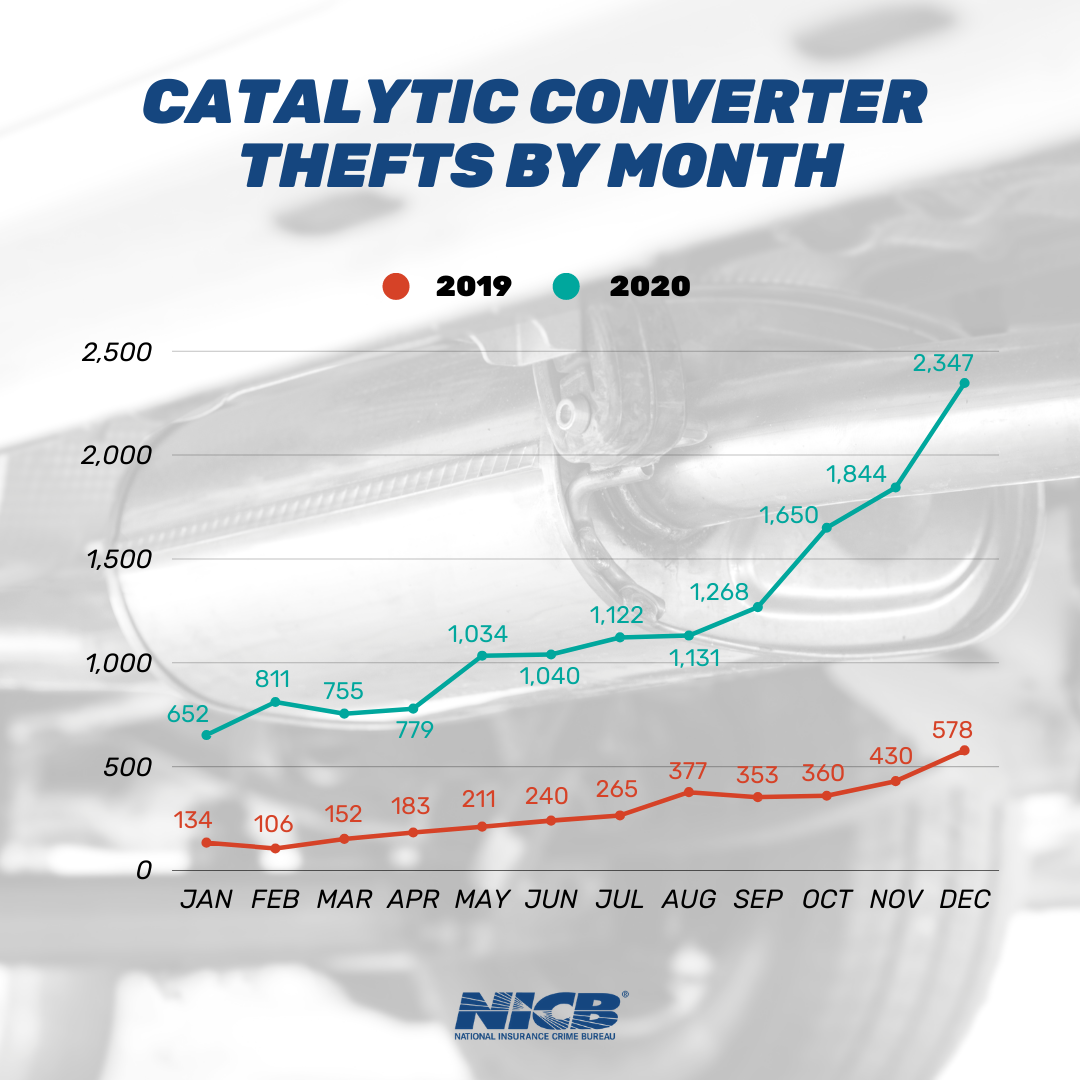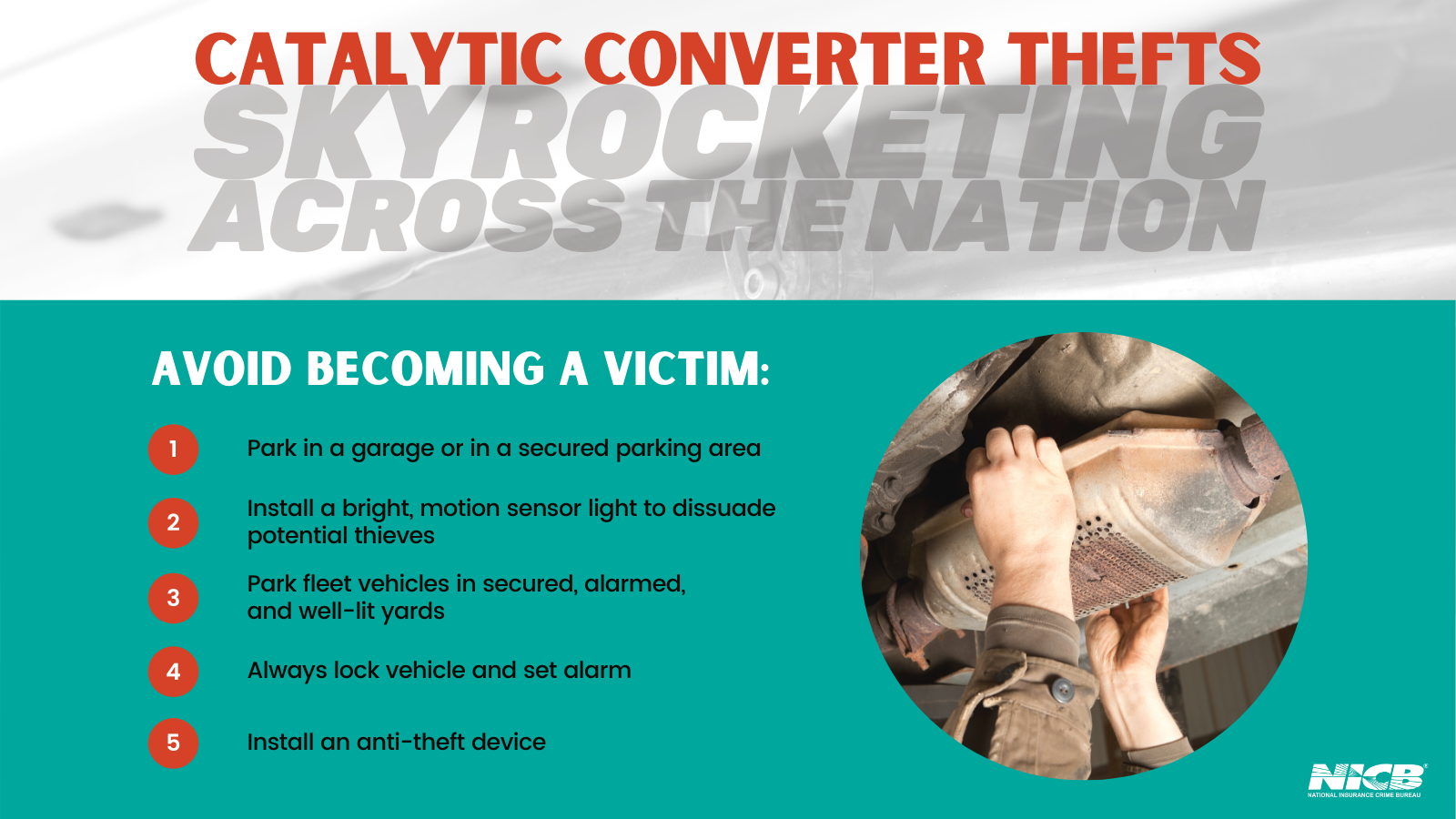Catalytic Converter Thefts Skyrocket Across the Nation
Thieves are ripping catalytic converters from cars at an alarming rate. As these thefts continue to sweep across the nation, catalytic converter theft victims find they need to fix a major and unexpected problem, a repair that could cost thousands of dollars.
According to a report by NICB, the increase in thefts are dramatic. In 2018, there were 1,298 catalytic converter thefts reported. In 2019, it was 3,389 reported thefts. In 2020, reported catalytic converter thefts jumped massively to 14,433, with December leading the way with 2,347 thefts, or roughly 16 percent of the yearly total – in just one month.
A catalytic converter is a device that looks like a small muffler along with the exhaust system. It is designed to convert the engine's environmentally hazardous exhaust into less harmful gasses. To do this, they use platinum, palladium, or rhodium. In recent years, however, the values of these precious metals have skyrocketed. As of December 2020, rhodium was valued at $14,500 per ounce, palladium at $2,336 per ounce, and platinum going for $1,061 per ounce. Typically, recyclers will pay $50 to $250 per catalytic converter.
As the value of the precious metals contained within the catalytic converters continues to increase, so do the number of thefts of these devices. There is a clear connection between times of crisis, limited resources, and disruption of the supply chain that drives investors towards these precious metals.
As of the end of February 2021, 18 states – Arkansas, Georgia, Hawaii, Illinois, Indiana, Iowa, Minnesota, Missouri, New Mexico, New York, North Carolina, North Dakota, Rhode Island, South Carolina, Tennessee, Vermont, Virginia, and West Virginia – are evaluating potential legislative actions to curb the theft problem.
Removing a catalytic converter takes only minutes using some basic, readily available battery-operated tools from a local hardware store. It's costly for the vehicle owner due to the loss of work, finding and paying for alternate transportation, and then paying anywhere from $1,000 to $3,000 to get your car fixed.
To reduce the chance of having your catalytic converter stolen, the NICB recommends:
- Install a catalytic converter anti-theft device. These are available from various manufacturers and can provide a level of security from theft.
- If parking a fleet truck at a business overnight, consider enclosing the vehicle in a secured area that is well lighted, locked, and alarmed.
- For personal vehicles, if possible, park in a garage. If not possible and the vehicle must be parked in a driveway, consider installing motion sensor security lights. While lights may not provide complete security, it may make some thieves think twice, instead opting to leave the area and your car untouched.
In some cases, this theft is covered by insurance. The optional comprehensive portion of your insurance policy, the portion that covers damage caused to your car not caused by accident, covers this kind of loss. However, the owner will be responsible for paying the deductible. If your deductible is $1,000 and the cost to repair the damage costs $1,000 or maybe a few hundred dollars more, drivers may not opt to file a claim. The NICB advises drivers to contact their insurer to report the theft and determine the best course of action.

